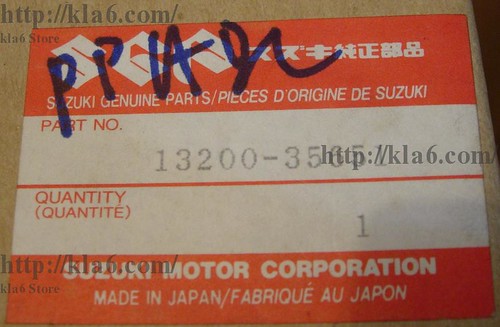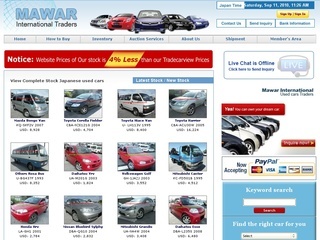Suzuki Truck Dealers
Suzuki's growth has been predicated on its distinctive domestic and
international strategies. Domestically, the company owes its success to
its high-quality engines, around which it designs a wide variety of
vehicles for special or emerging niche markets. Internationally, Suzuki
has traditionally targeted developing countries with growing
populations, including
Suzuki's policy in these markets is to find a local partner to sell
simple, more affordable vehicles, taking advantage of the small margins
on huge volumes of sales. Suzuki is also involved in a longstanding
alliance with General Motors Corporation (GM), with Suzuki acting as a
key component in GM's network of alliances with Asian automakers; GM
holds a 20 percent stake in Suzuki. As part of this alliance, Suzuki has
taken a 15 percent stake in South Korean automaker GM Daewoo Auto &
Technology, the former Daewoo Motor Company. Suzuki also holds majority
control of automakers Maruti Udyog Ltd. of India and P.T. Indomobil
Suzuki International in Indonesia. In the U.S. market, Suzuki's strategy
is an extension of its domestic plan. While the major automakers battle
for leadership in mass markets, Suzuki excels in the quirky niches
between jeep and sport-utility vehicle and between compact and
subcompact.
Early 20th-Century Founding
Suzuki Motor Corporation was founded by Michio Suzuki in 1909 as a
manufacturer of weaving machines. From its base in Hamamatsu, the Suzuki
Loom Works, as it was then known, supplied weaving equipment to
hundreds of small fabrics manufacturers in and between Tokyo,
and Nagoya. At the time, textile manufacturing was one of Japan's
biggest industries. It provided a growing and stable market for the
Suzuki enterprise. In 1920 Michio Suzuki took his company public and
named the new firm Suzuki Loom Manufacturing Company.
Suzuki continued to manufacture weaving machines exclusively
throughout the 1920s and until the mid-1930s. At that time a militarist
clique gained control of the government and began a massive mobilization
program called the "quasi-war economy." Companies throughout the
country were asked to begin planning for a conversion to armaments
manufacturing. Suzuki was an especially attractive supplier because it
was in the business of equipping other factories. In addition, the
company was located far away from major industrial centers that would
become primary bombing targets.
By 1937 Suzuki had begun production of a variety of warrelated
materials, which may have included vehicle parts, gun assemblies, and
armor. For its part in Japan's World War II
effort, Suzuki, like thousands of other companies, was requisitioned
for war production and probably had no intention of becoming a
manufacturer of military implements. Nevertheless, the company continued
to manufacture weaving machines for the duration of the war.
Fortunately, the Suzuki factory and the city of Hamamatsu escaped the
ravages of U.S. bombing campaigns. The company was capable of resuming
production after the war, but the economy and supply networks were in
ruins.
New Directions After World War II
Suzuki reestablished production of textile manufacturing equipment
soon after World War II. Japan, however, was so impoverished that there
was little demand for new woven products. As a result, few companies
could afford to purchase new looms. By 1947 the pace of investment
continued to be slow, prompting Suzuki to make a major change in its
business. That year the company moved to a new headquarters building
and, relying on the manufacturing experience it had gained during the
war, began design work on motorized vehicles. The prospects were
favorable; Japan was a nation of nearly 100 million people, nearly all
of whom lacked access to basic transportation.





No comments:
Post a Comment